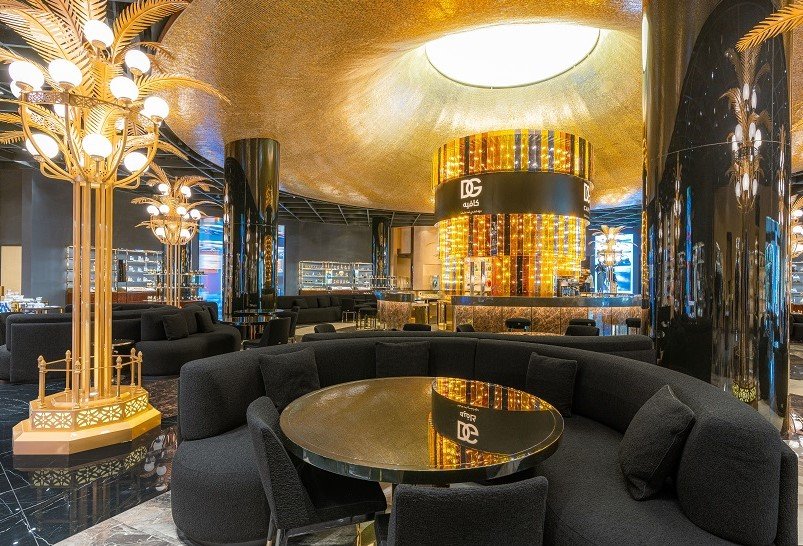Kingdom’s high-end restaurants face tighter service standards in push for luxury hospitality boom
Fine dining in Saudi Arabia is getting a serious makeover. The Ministry of Municipalities and Housing has laid out a fresh set of regulations aimed at reshaping the country’s high-end restaurant scene — and it’s about more than just what’s on the plate.
From banning drive-thrus to requiring valet parking and eliminating visible cash registers, the Kingdom is doubling down on the luxury dining “experience.” It’s not just about food anymore — it’s about ambiance, ritual, and formality. And the message is clear: if you’re calling yourself fine dining, you’d better act like it.
Tablecloths Are In. Fast Service? Out.
Saudi Arabia’s new rulebook reads more like the playbook of a Michelin guide inspector than a municipal directive. Full table service is now non-negotiable — waitstaff must greet guests from the entrance, walk them to their table, and manage the dining process start to finish.
No more counter ordering. No more grabbing your own seat. Definitely no kiosks.
In fact, the very sight of a cashier counter is now considered out of place.
Restaurants that want to be classified as fine dining must also:
-
Offer valet parking or clearly designated premium parking.
-
Enforce a guest dress code — though details weren’t made public.
-
Ban any drive-thru or fast-service element.
-
Feature beverage prep areas in clear view.
-
Integrate a digital reservation system.
It’s not just formality for formality’s sake. Authorities say these steps are necessary to attract global investors and tourists seeking high-end culinary experiences.

Aiming for Michelin-Level Expectations
These new standards come as Saudi Arabia courts some of the world’s most prestigious hospitality brands. From luxury hotel chains to celebrity chef-led restaurants, Riyadh and Jeddah are already seeing a slow but steady transformation.
The country’s sovereign wealth fund, the Public Investment Fund (PIF), has poured billions into hospitality, and tourism officials have made no secret of their desire to bring Michelin-level dining to the Kingdom.
One sentence for rhythm.
These rules seem designed to grease the wheels.
“We’re witnessing a shift where Saudi cities are starting to think like global capitals,” said a Jeddah-based hospitality consultant who works with several fine dining establishments. “It’s not just about eating well. It’s about prestige, consistency, and international appeal.”
No More Grab-and-Go Luxury
Fast food has no place in this vision. One of the more striking parts of the new regulation is the complete ban on drive-thrus at fine dining restaurants.
That includes luxury burger joints or upscale cafés that have sometimes blurred the line between casual and premium.
Here’s what’s now prohibited:
-
Drive-thru or takeaway windows at luxury restaurants.
-
Visible cashier counters or self-service payment machines.
-
Buffet-style or cafeteria-like setups.
It’s a sharp line in the sand. You’re either fine dining — or you’re not.
And if you are, your front-of-house had better be dressed for the part.
Regulating the Plate, Too
It’s not just about service and space. The government’s new guidelines also touch on what’s served.
Menus must now have:
-
At least three distinct categories: appetizers, mains, and desserts.
-
A digital reservation platform linked to the restaurant’s online presence.
-
Clearly defined beverage options with preparation done in open view.
These elements are intended to bring structure and transparency to the customer experience. No more vague menus. No more confusion over availability.
One-sentence paragraph here.
And yes, complaints need to be taken seriously too.
Fine dining outlets are required to set up a clear complaint submission channel — whether digital or via staff — and respond within a specific timeframe.
Behind the Move: Image and Investment
So why now?
Officials say the rules are part of a wider effort to boost Saudi Arabia’s global hospitality credentials, especially in preparation for key tourism initiatives like Vision 2030, NEOM, and Riyadh Expo 2030.
The Kingdom is targeting 100 million visitors a year by 2030 and wants its cities to be seen as cultural and culinary destinations — not just religious or shopping hubs.
One Riyadh-based restaurant manager told us the message was loud and clear: “The government wants us to raise our game. We’re no longer just competing with Dubai or Cairo. They want us to match Paris, London, New York.”
That means Michelin stars, celebrity chefs, and yes — valet parking.
What This Means for Restaurant Owners
The reaction from restaurant owners has been mixed.
While some welcome the push for higher standards, others are concerned about costs and operational challenges — especially smaller upscale restaurants that might not have space for valet zones or staff for full table service.
There’s no grace period either. The rules are in effect immediately, with compliance inspections expected to begin in major cities first.
Here’s a quick summary of the new fine dining rules:
| Requirement | Status |
|---|---|
| Valet Parking | Mandatory |
| Visible Cashier Counters | Banned |
| Drive-Thru Service | Banned |
| Digital Reservation System | Mandatory |
| Beverage Prep Visibility | Required |
| Table Service Start-to-End | Mandatory |
| Complaint Submission System | Required |
| Menu with 3 Categories | Mandatory |
| Dress Code | Enforced |
Restaurants that fail to comply could risk losing their licenses or being reclassified as casual dining — a status that comes with fewer privileges and investment incentives.
